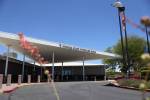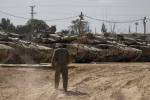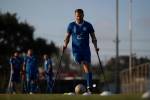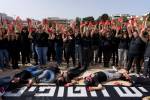Military families and mental health: Understanding the issues and available resources
Today's service men and women are facing particularly challenging circumstances. Many soldiers have been deployed several times to the wars in Afghanistan and Iraq, often serving in prolonged combat operations. Army Secretary John McHugh recently told Congress that, for perhaps the first time in history, there are more than 50,000 soldiers in uniform who have had at least four deployments, and some have even served 10 or more.
The full impact of multiple deployments is still unknown. A recent study by the National Institute on Drug Abuse reveals growing trends in a range of mental health issues, as well as prescription drug and alcohol abuse, among soldiers and veterans. A 2012 report from the U.S. Army Public Health Command found that, since the start of the Iraq War in 2003, the rate of suicide among U.S. Army soldiers has increased. This coincides with a rise in other conditions including depression, anxiety and post-traumatic stress disorder (PTSD).
"Our men and women in uniform are making the world a better place and their contributions are invaluable," says Dr. Joseph Hullett, a Vietnam-era Marine Corp veteran and senior medical director of Clinical Strategy for OptumHealth's behavioral health business. "But many soldiers, veterans and their families may have trouble recognizing the signs of a mental health condition or may even be afraid or embarrassed to reach out.
"A mental health condition is not a weakness and it's nothing to be ashamed of," says Hullett. "The good news is there is help available to support soldiers and veterans so they can enjoy a full, healthy life."
Hullett offers military families tips for recognizing a mental health condition and knowing when it may be time to seek help:
* Signs of depression: Depression often manifests itself in feelings of hopelessness, lack of interest in the things you once loved, and having trouble sleeping or sleeping too much.
* Signs of anxiety: Anxiety is marked by needless worrying, indecisiveness, difficulty concentrating, irritability and physical symptoms such as sweating, heart pounding and dizziness.
* Signs of PTSD: PTSD is not limited to combat experiences. In fact, women veterans suffer disproportionately high rates. Moreover, people suffering from PTSD often don't talk about the traumatic events. Look for:
- Intrusive memories and nightmares
- Emotional extremes
- Anxiety and guilt
- Unreasonable or disproportionate fear
- Substance abuse
"If you or a loved one is experiencing these symptoms for more than a few days and they are interfering with work or relationships, help is available," says Hullett. "And if the problems are severe, talk to your doctor right away."
Hullett suggests a few resources for soldiers, veterans and their families:
* The Substance Abuse and Mental Health Services Administration "Military Families" webpage (www.samhsa.gov/militaryfamilies).
* The National Alliance on Mental Illness Veterans' Resource Center (www.nami.org/veterans); and the National Center for PTSD of the U.S. Department of Veterans Affairs (www.ptsd.va.gov).
* The Defense Center of Excellence (DCOE) for Psychological Health's website on military behavioral health (www.dcoe.health.mil).
* Visit www.liveandworkwell.com website to access useful resources to help military families get connected with the right support services.























